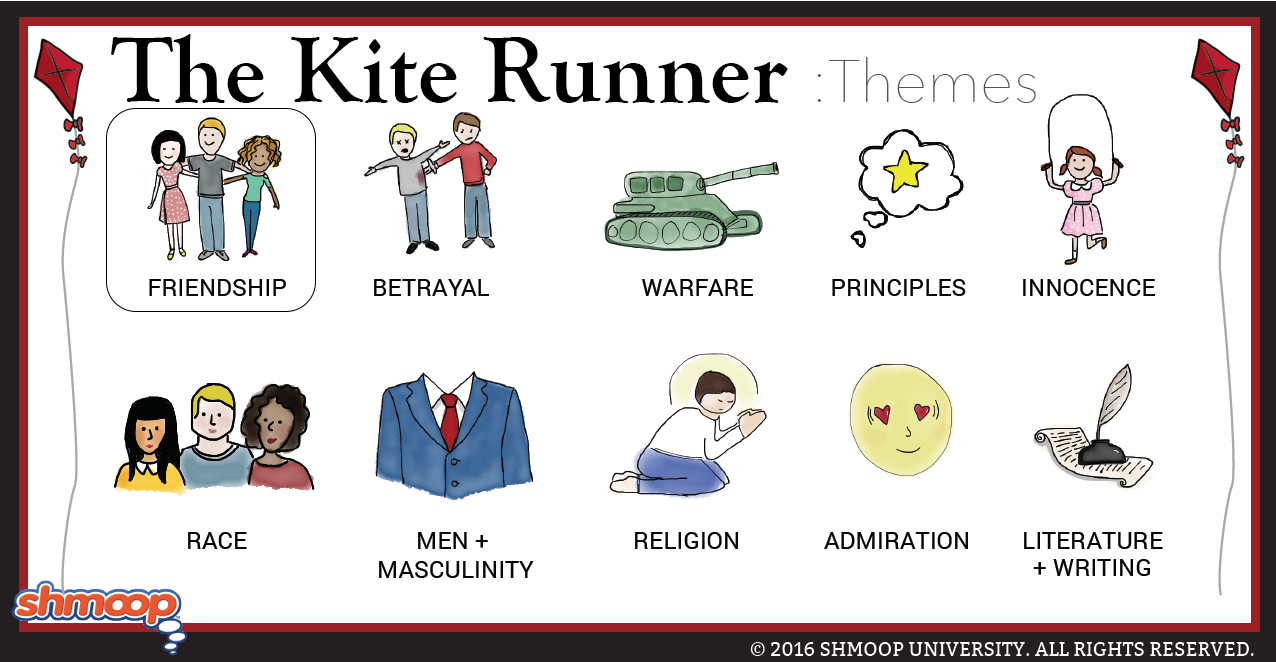 (Click the themes infographic to download.)
(Click the themes infographic to download.)
There are two major relationships in The Kite Runner. One is between the protagonist and his father. The other is between the protagonist and his best friend. Because the protagonist's best friend is also his servant, though, and a member of the discriminated against ethnic minority, the novel presents a relationship that is fairly complex. Should love for a friend outweigh the divisions of class and ethnicity? Or are these divisions too far-reaching? To make matters more complicated, the protagonist later learns his best friend is actually his half-brother. In some ways, this revelation dissolves the earlier problems posed by ethnicity, and Hosseini poses a new question: Can ethnicity divide the members of a family?
Questions About Friendship
- At the beginning of Chapter 4, Amir says: "But in none of his stories did Baba ever refer to Ali as his friend." Why do you think Baba refuses to refer to Ali as his friend? Is it the divide between servant and master? Does Baba consider Ali inferior because Ali is a Hazara? Does Baba feel guilty about sleeping with Sanaubar and thus unworthy of Ali's friendship?
- There's another group of friends in The Kite Runner whom you might pass over at first: Assef, Wali, and Kamal. Describe this group of friends. How do they compare to Amir and Hassan? Are there any similarities between Assef's clique and Amir and Hassan?
- Early on, Baba seems like a distant myth instead of a father. Certainly, he and Amir aren't friends while Amir is growing up. Their relationship changes significantly, however, once the pair settle in Fremont, California. Does Amir eventually become friends with Baba?
- Much of the novel is concerned with masculinity (e.g. what does it mean to be an Afghan man). Almost all of the friendships in the novel are male. How do ideas about masculinity inform the friendships in the novel?